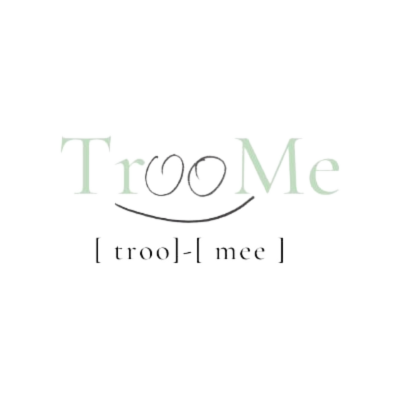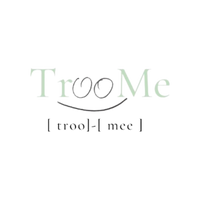Patrick Bet-David
This week on Small Talk, we sat down with Patrick Bet-David. An Iranian immigrant, American Entrepreneur, and master of all mentors, to chat pain and purpose, shame and strength, and empowering practices.
Value + Entertainment;
Patrick Bet-David is the creator and host of a popular YouTube talk show, Valuetainment; interviewing successful entrepreneurs, as well as controversial figures, offering value in the form of entertainment. 
“I’m the kid who would be in math class, and if the teacher was boring, and I saw a butterfly, I would instantly be distracted and follow the butterfly. You had to entertain me as a kid. If you were a teacher that was more or less ‘dull’ in your approach, you’ve lost me; I’m gone.”
Many students often have these troubles in the classroom, finding it difficult to sit still and listen to a teacher with little passion and enthusiasm.
So, Patrick assessed his weaknesses, acknowledged that many other people might struggle with the same lack of eagerness towards dullness, and acted upon it. Thus, bringing value into entertainment, creating Valuetainment.
“I think the way to get into someone’s heart and someone’s mind is through humor. And I think if you can figure out a way to add humor and entertainment to your method of teaching and sharing value, people are willing to internalize it and process it more.”
If more teachers began to use Patrick’s teaching methods by telling stories, exciting their students, and adding some ‘sizzle to it,’ we at TrooMe believe that classrooms would be a place of enthusiastic learning, opposed to dreary desks. 
“Valuetainment is really just a way to get the message across.”
Inspiration and Acknowledgements;
A major part of Patrick’s life’s work has been inspiring the masses whilst introducing value into their lives.
Because of this, we wanted to know who has been Patrick’s biggest inspiration and influence on his journey, enhancing how he gives back and lives his life.

“I have a painting on my wall of a bunch of different personalities. I’m in the middle in the back, and I’m talking to Tupac, who is on my right. On my left is Ayrton Senna, the racecar driver, and then there’s the Shah of Iran, Lincoln, Kennedy, Einstein, Martin Luther King, Milton Friedman, and an empty chair. We’re in a bank vault turned into a library, and we’re debating two books that are on the table in front of us.”
The painting that Patrick describes in his office features characters he idolizes who have all impacted his life in some way, shape, or form.
“I also have three life-size characters in my office, The Hulk, Batman, and the Joker, all of whom I have a little bit inside of me.”
The artwork that Patrick describes is featured in his office as a source of creative inspiration that he can find himself within to pull inspired ideas outwards. 
“My source of inspiration, and who’s impacted me….most of them are not around anymore. Everybody in that painting is dead except for me. I have the weirdest (imaginary) conversations with them. When I’m sitting here, we talk, and we go to different places. I run a lot of ideas past each of them, drawing a lot of my values and philosophies from how others have made decisions in the past, taking a little bit from here, a little bit from there, and making it into my own philosophy.”
Patrick Bet-David has one of the most wildly inspiring stories we’ve seen at TrooMe.
Born and raised in Iran until the age of ten, Patrick later made his way to Germany, living in a refugee camp for two years, until his arrival in the U.S.
After high school Patrick joined the U.S. military and served in the 101st Airborne before starting a business career in the financial services industry. Patrick then went on to start his own insurance company, PHP Agency, which has grown to employ nearly 18,000 insurance agents nationwide.
For Patrick, Valuetainment was a ‘fluke.’ 
“We accidentally ended up starting this YouTube channel, but I draw a lot of my creative inspiration from the folks in my painting. I’ve had to make a lot of tough decisions, and they inspire me regularly.”
What an inventive creative process, one we’ve never seen before.
Each of us has ways in which we spark our creativity. For some, this may mean lighting a candle, putting on a piece of thought-provoking music, or, like Patrick, decorating our walls and workspaces to uplift, enliven and stimulate. 
“If you were in this room, you would either say that I’m crazy, or my mind is busy, but you would definitely be inspired.”
Taking Control;
Through his popular show, Patrick has spoken to many controversial figures, from Former Antifa Activists, to the FBI’s most wanted con artists.
Oftentimes in our lives, when pain and shame play such a huge role in our narratives, one may find it difficult to take control of their story instead of allowing their story to control them.
To this, Patrick says that he has not met one person in his life whose story didn’t involve pain or shame, but it all comes down to our next decisions from that point forwards.

“When it comes to pain and shame, when I’m talking to a lot of these controversial figures, I’m trying to see the tipping point. Meaning, at what point did you decide to be the underboss of the Gambino crime family; what was the tipping point, and could they have gone a different direction.”
Through many of Patrick’s conversations, he finds that the ‘tipping point’ usually comes down to one decision.
“We’re one decision away from ruining our lives, every single one of us, including the biggest saint in the world. We’re one decision away from losing everything we have. But, we’re also one or two decisions away from completely turning our lives around.”
In his interviews, Patrick is interested in these decisions, what triggered them, and how the rest of us can learn from them.

“When I look at all of the bad decisions that I’ve made and continue to make, I see a very common pattern of what leads me to make a bad decision. I become curious if I could’ve done something differently, and what I can improve on the next time.”
When we dissect our poorly judged decisions of the past, like Patrick, we come to find patterns in our behavior. By learning from our mistakes and others' mistakes, we are then able to reflect on our choices and make the necessary changes needed for future improvement.
In Patrick’s new book, Your Next 5 Moves, we learn that what our lives really come down to is the question of, ‘What can I do next that will put me in a better position?’
Guess We’ll Never Know;
Patrick frequently asks hundreds, if not thousands, of questions to the broadest range of guests.
Yet, with many of his questions answered, some continue to remain unknown. 
“There are so many things that we’ll never know. The existence of God is one of them. Career-wise, did you do exactly what you were meant to do? And what would’ve happened if you had gone that route? You’re never going to know the real answers until you die, and sometimes the biggest battle is accepting the fact that you’re not going to know everything.”
The truth is, we will never have all the answers that we search for in life. There are simply some things that will remain a hidden mystery until the day we die.
But that’s what keeps life exciting. What would be the point of waking up each morning if we knew every answer?
Much of the beauty in life is continuing to explore, discover, and to ask, ‘what if,’knowing that we may never have the answers.
“You will be miserable if you try and live the rest of your life searching for questions that we’ll never know the answers to. Putting energy into things that you’ll never find out about is the closest thing to torture. So, enjoy life for what it is, and know that can’t know it all.”
Open and Receptive;
Oftentimes in our lives, we encounter many people with different views, beliefs, and opinions than our own. Yet, who is to say who is right and who is wrong?
Living with a willingness to learn from everyone, and everything is difficult, but it holds great importance, as there might be something to be learned. 
“It’s not easy to do; it’s a tough thing to do.”
From a young age, we develop our views and opinions based on those of our parents. Depending on our relationship with our guardians, we either take on their views as our own or resent them for the beliefs bestowed upon us.
“You may have had a bad relationship with your catholic mother; leading you to carry animosity towards the catholic religion. Vice versa, your dad may have always been there for you, so you’re loyal to his beliefs, and you’re loyal to his way of living.”
The same takes place with our views towards money, the rich vs. the poor, and the abundance or scarcity mindset.
If we grow into a household that resents the rich, planting the idea in our minds that money causes pain and suffering, we, as well as the idea planted in our minds, will grow into what we know as our beliefs. 
“I grew up, and I couldn’t stand rich people; I hated them because my mother would say that the rich were bad people who used others. So, as I aged and met greedy rich people, I’d think to myself, ‘mom’s right.’ But then, I’d meet a lot of rich people who gave back, and I had to form my own opinion.”
When we grow into the beliefs, opinions, and views on the world handed down to us, it becomes our job as we age to form our own ideology.
“You end up having to ask yourself, ‘who’s right and who’s wrong?’ One of the hardest things to do is to reason with differing views.”
Patrick has come to find the lack of research that goes into forming a belief or opinion. We hear others gossip, allow their thoughts to become our own, half of the time, failing to realize that our thoughts are not our own.
“People don’t research anymore; people jump to conclusions. People scrape the surface level of information on a person, place, or thing, vs. wanting to do a little bit more research, and being okay with one of your parents being wrong, and your teacher not knowing everything. The question then becomes, are you willing to not be lazy, go do the research, and come up with your own conclusion?”
Mr. Bet-David couldn’t be more correct. How commonly do we adopt others' beliefs and fail to realize that who we are and what we ‘know’ to be true, in reality, is an adoption of a certain point of view?
To break free and truly become our own person, we must research before embedding a particular conviction.
101 Questions;
Patrick Bet-David has one of the most demanding schedules we’ve seen at TrooMe. Being a CEO with thousands of employees to be accountable for, would fill up anyone’s day planner.
Not to mention, Mr. Bet-David has a beautiful family; a wife, three kids, and the recently discovered and exciting news of twins on the way.
How would one even begin to balance this act?
For Patrick, it begins with conversation and communication. 
“I think it all comes down to the conversations you have before you get married. There was a time when I didn’t believe I would get married; I was happy going to movies alone and being single. There were many questions I needed to ask myself, and during that process, my assistant introduced me to a book named ‘101 Question to Ask Before You Get Engaged’. The book came in, and I was stunned. I had been asking all of the wrong questions.”
More often than not, we come to find that we limit ourselves due to the questions we had previously been asking ourselves.
Through this realization, Patrick understood that it wasn’t that he didn’t want to get married, but he had been asking the wrong questions.
“I was seeing a few different girls throughout that time period. Every one of the girls and I would go through the questions together, and I realized that it wasn’t going to work with any of them…then comes my wife. We have our first date, and then on our second date, I buy her the book. She asked me what it was, and I told her I wasn’t looking for a girlfriend; I was looking for a wife. A week went by, and we took 6 hours to go through the questions together. When we finished, I said, ‘this could potentially work. A year and a half later, we were married, and we’ve been married for 11 years.”
It comes down to questions. Not only the questions we ask ourselves, but the questions we pose to others that specify our direction and intention.
By taking the time to ask himself and his wife to be the 101 questions, Patrick and his spouse have found their perfect balancing act. 
“Family time needs to be negotiated upfront before you get married; if it isn’t, you’re screwed. My wife and I, we’ve fought one million times, sometimes resembling world war three. We also have three beautiful kids, with twins on the way. We work together, we have lunch three to four times a week, and it’s because of those conversations we had almost fifteen years ago.”
In having these conversations, future arguments are solved. When a discussion of expectations comes up, you’ve already had the conversation, and you and your partner are both held accountable. 
“Marriage is complicated; it’s one of the most difficult things I’ve done in my life. I already have a hard time getting along with my own self, throwing another person into the equation, along with three kids, is complicated. But, there’s a lot of good to it; there’s more that is good than bad. But you’ve got to do it right, and our way has worked for us.”
Best Advice;
“I was at a work gathering, and this older man, whom I respected a lot, came up to me, and he said, ‘look at everybody here. Everyone here will read ten to twenty books, but they’re eventually going to stop’, and he told me, ‘if you out-read these guys, you’ll get to the top of the world.’ I said ‘okay,’ and ever since, reading has become an obsession of mine.”
As mentioned in our interview with Anne Bogel, reading is a tool as well as a treasure. And in the words of Jim Rohn, “Reading is essential for those who seek to rise above the ordinary.” 
“Books changed my life. My philosophy that I talk about in my book that just came out, Your Next Five Moves, is; outwork, out improve, out strategize, and outlast. If a person can last a long time of constantly working, constantly improving, and constantly strategizing, they’ll outlast and overcome all of their competition.”
No Longer Pursue;
100% True;
We asked Patrick Bet-David what he knows 100% to be true, leaving us with two answers;
First Answer;
“Capitalism works.”
Patrick’s background is in math, so for him, it all comes down to numbers, strategy, thus cultivating the secret formula to constant improvement. 
“It’s a mathematical formula, and there has to be an incentive. In everything in life, there has to be an incentive. In a relationship, there needs to be a reason to stay. In the world of business, if you’re not constantly improving, then the world is going to get bored with you.”
The same applies to the media world of content. If the content is the same as it was five or ten years ago, the world is bound to become bored with you and will move on.
“One of the hardest things in the world of business and media is to stay relevant for decades. It’s tough to do. Anybody can make a splash in one year, six months, or twenty-four months, but to stay relevant for a while is very difficult.”
The system that Patrick speaks of is so effective because it requires constant and consistent improvement. 
“If you don’t improve, you’re K-Mart, you’re forgotten about. If you don’t improve, you’re ToysRUs; you didn’t innovate. If you don’t improve, you’re Blockbusters, and Netflix is going to come in and improve the way we want to watch movies.”
It’s the small things that make the biggest differences.
A few minutes set aside each day to read, study, practice, and improve your area of expertise, leads to massive results over time.
Second Answer;
“I teach my kids the following things before bed each night. I say, ‘guys, what are four things we do as a family?’ And they say, ‘lead, respect, improve, love.’ We lead in every situation we’re in, we respect because there’s something to learn from everyone, we improve because improvement gives you peace of mind, and we love people because God knows we need more love in life.”
Courage, wisdom, tolerance, and understanding are teachings that Patrick has lovingly brought into his home. In teaching his children these important lessons, he can rest assured that his family has the tools needed to lead fulfilling lives. 
“If you want to do something big in your life, you’re going to be scared, and you must have courage. If you want to lead people older than you, you need wisdom. When dealing with people, you need tolerance, and throughout life, you need understanding because everybody is going through something different.”
At TrooMe, we believe that courage, wisdom, tolerance, and understanding are the foundations of living a balanced and abundant life.
May we follow in Patrick’s footsteps, striving to succeed with a forward-focused vision, leading our lives with respect for ourselves and others, and when in doubt, love, love, and love more.





Leave a comment